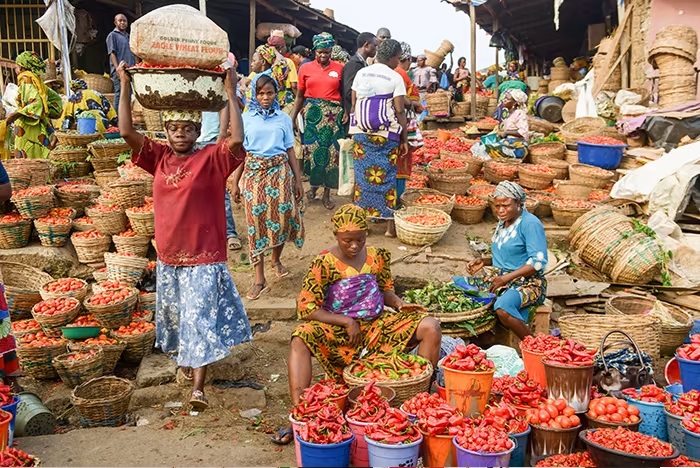
The consumer price index (CPI), which measures the rate of change in prices of goods and services, rose to 24.08 percent in July 2023; the highest Nigeria has had in more than a decade.
The latest figure, which marks the seventh consecutive increase in the nation’s inflation rates this year, jumped from 22.79% recorded in June, according to the CPI report published by the National Bureau of Statistics (NBS) on Tuesday.
According to the NBS report, the headline inflation rate rose to 24.08 percent in July 2023, relative to that of the previous (June 2023) rate which was 22.79 percent.
Register for Tekedia Mini-MBA edition 19 (Feb 9 – May 2, 2026): big discounts for early bird.
Tekedia AI in Business Masterclass opens registrations.
Join Tekedia Capital Syndicate and co-invest in great global startups.
Register for Tekedia AI Lab: From Technical Design to Deployment (next edition begins Jan 24 2026).
“Looking at the movement, the July 2023 headline inflation rate showed an increase of 1.29 percent points when compared to June 2023 headline inflation rate,” NBS said.
“On a year-on-year basis, the headline inflation rate was 4.44 percent points higher compared to the rate recorded in July 2022, which was 19.64 percent.
“This shows that the headline inflation rate (year-on-year basis) increased in July 2023 when compared to the same month in the preceding year (i.e., July 2022).”
Nigeria’s inflation rate had previously touched the 24 percent mark in September 2005, registering at 24.3 percent during that period.
On a month-on-month basis, NBS said the headline inflation rate in July 2023 was 2.89 percent — 0.76 percent higher than the rate recorded in June (2.13 percent).
This means that in July 2023, on average, the general price level was 0.76 percent higher relative to June 2023.
“The percentage change in the average CPI for the twelve-month period ending July 2023, over the average of the CPI for the previous twelve-month period, was 21.92 percent; showing a 5.17 percent increase compared to 16.75 percent recorded in July 2022,” the data body said.
Food inflation jumped to 26.98 percent
The report also said the food inflation rate in July 2023 hit 26.98 percent on a year-on-year basis. This was 4.97 percent points higher relative to the rate recorded in the same month last year.
The rise in the food index, NBS said, was caused by increases in prices of oil and fat, bread and cereals, fish, potatoes, yam and other tubers, fruits, meat, vegetable, milk, cheese, and eggs.
“On a month-on-month basis, the food inflation rate in July 2023 was 3.45 percent, this was 1.06 percent higher compared to the rate recorded in June 2023 (2.40 percent). The rise in food inflation on a month-on-month basis was caused by increases in prices of bread and cereals, potatoes, yam and other tubers, fish, oil, and fat,” the report reads.
“The average annual rate of food inflation for the twelve-month ending July 2023 over the previous twelve-month average was 24.46 percent, which was a 5.71 percent points increase from the average annual rate of change recorded in July 2022 (18.75 percent).”
Food inflation was higher in Lagos, Ondo, and Bayelsa in July
According to NBS, CPI is weighted by consumption expenditure patterns that differ across states and locations.
This means the weight assigned to a particular food or non-food item may differ from state to state making interstate comparisons of consumption baskets inadvisable and potentially misleading.
However, the report shows that Lagos, Ondo, and Kogi residents paid more for food in the period under review.
“In July 2023, food inflation on a year-on-year basis was highest in Kogi (34.53 percent), Lagos (32.52 percent), and Bayelsa (31.31 perecnt), while Jigawa (20.90 perecnt), Sokoto (21.63 percent), and Kebbi (22.45 percent), recorded the slowest rise in food inflation on a year-on-year basis,” NBS said.
The statistics agency said on a month-on-month basis, July 2023 food inflation was highest in Kogi (6.73 percent), Akwa Ibom (5.64 percent), and Bayelsa (4.59 percent), while Taraba (-0.21 percent), Jigawa (0.28 percent), and Yobe (0.90 percent), recorded the slowest rise in inflation.



